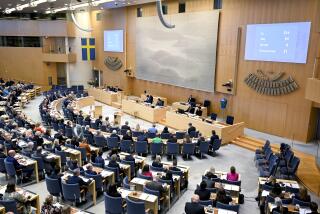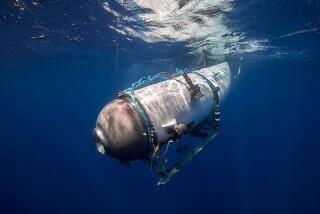FARC as the spark
There hasn’t been a really good war in Latin America for many years, but a couple of Andean ideological hotheads are threatening to change that, as Venezuela and Ecuador mobilize troops at their borders with Colombia. Like otherworldly monks, most other leaders in the region are sanctimoniously intoning respect for sovereignty, and the Organization of American States has set up a commission to investigate. If Latin American leaders aren’t more serious behind closed doors than they are in public, this hemisphere could be in for some very rough weather.
Venezuelan President Hugo Chavez’s casus belli is an event that didn’t even involve his country, but rather what he calls the Colombian military’s “cowardly murder” last weekend of Colombian guerrillas encamped across the Ecuadorean border.
If Colombians cross Venezuela’s border as they did Ecuador’s, Chavez warned, he will retaliate with troops, tanks and the fighter jets he bought from Russia. Already Caracas and Quito have broken diplomatic relations with Bogota, in addition to posting the troops. Former Argentine diplomat Andres Cisneros probably got it right on Wednesday when he called Chavez a “resurrected Galtieri,” alluding to the Argentine general who tried to distract attention from miserable conditions at home by launching the Falklands war a quarter-century ago. Chavez too has big problems at home.
Others say that by crossing the border, Colombian President Alvaro Uribe is the threat and that not punishing him will turn Latin America into another Middle East. In truth, the dominant factors for many critics are Uribe’s close relations with Washington and the heightening tensions between Latin American leftists who openly adulate Chavez and those who don’t but are afraid to go against him because it would tarnish their “leftist” credentials.
No one is blameless. Colombia did violate Ecuador’s sovereignty and acknowledges it, and most Latin governments have condemned the action, claiming they do not want to be “drawn into” Colombia’s mess. But Ecuador and Venezuela are already up to their noses in Colombia’s mess. As former Mexican President Vicente Fox said Wednesday at Stanford University, Chavez is “too close to the guerrillas” and “part of the problem.”
The killing Saturday of Chavez’s friend, known as Raul Reyes, the No. 2 leader of the Revolutionary Armed Forces of Colombia, or FARC, and 16 others was a major strike against the guerrillas. But it must be seen in the context of more than four decades of warfare between the government and guerrillas. At times, the FARC and smaller guerrilla groups, and right-wing paramilitaries that arose in response to the guerrillas, wandered through half of Colombia, killing at will. Under Uribe, violence is down, and with extensive U.S. military aid, the FARC has been reduced from about 16,000 soldiers to a still deadly 6,000 to 8,000.
The FARC has long claimed to seek a socialist revolution, though over the last 15 years its leaders have mainly formed drug cartels, often with havens in neighboring countries. Several weeks ago, Chavez gave his blessing to the FARC as a “genuine” army with “a Bolivarian political project,” alluding to his own goal of “Bolivarian” socialism. He said Uribe and others should recognize it as a legitimate national force.
Add Chavez’s characterization of the Uribe government as a “criminal ... terrorist state” and it is clear the Venezuelan rejects Colombia’s elected leaders in favor of a group the vast majority of Colombians reject. Colombians overwhelmingly reelected Uribe president, mainly on a platform of crushing the FARC. And 83% polled supported the attack last weekend.
The United States, the European Union and many other governments classify the FARC as “terrorist” because of its involvement in murder, bombings, narco-trafficking, kidnapping and attacks on Colombia’s political and economic institutions. The FARC has been directly and indirectly responsible for much of the mayhem and slaughter that have left many thousands dead, in foreign exile and uprooted in their own country.
Uribe’s response to the guerrillas and regional criticism is: “We are not warmongers, but we are not weak. We cannot allow terrorists who seek refuge in other countries to spill the blood of our countrymen.”
Colombia’s strike demonstrated a refusal to accept that international law permits terrorists to attack and then flee with impunity to a sanctuary in a neighboring country that tolerates or even supports the guerrillas. Indeed, though the documentation remains to be examined, Colombia says information found in Reyes’ laptop clearly proves Venezuelan and Ecuadorean support for the FARC.
If international law does not sanction self-defense in a case such as this one, then international law becomes less relevant in a world that desperately needs enforceable laws that recognize realities.
More to Read
Start your day right
Sign up for Essential California for news, features and recommendations from the L.A. Times and beyond in your inbox six days a week.
You may occasionally receive promotional content from the Los Angeles Times.





